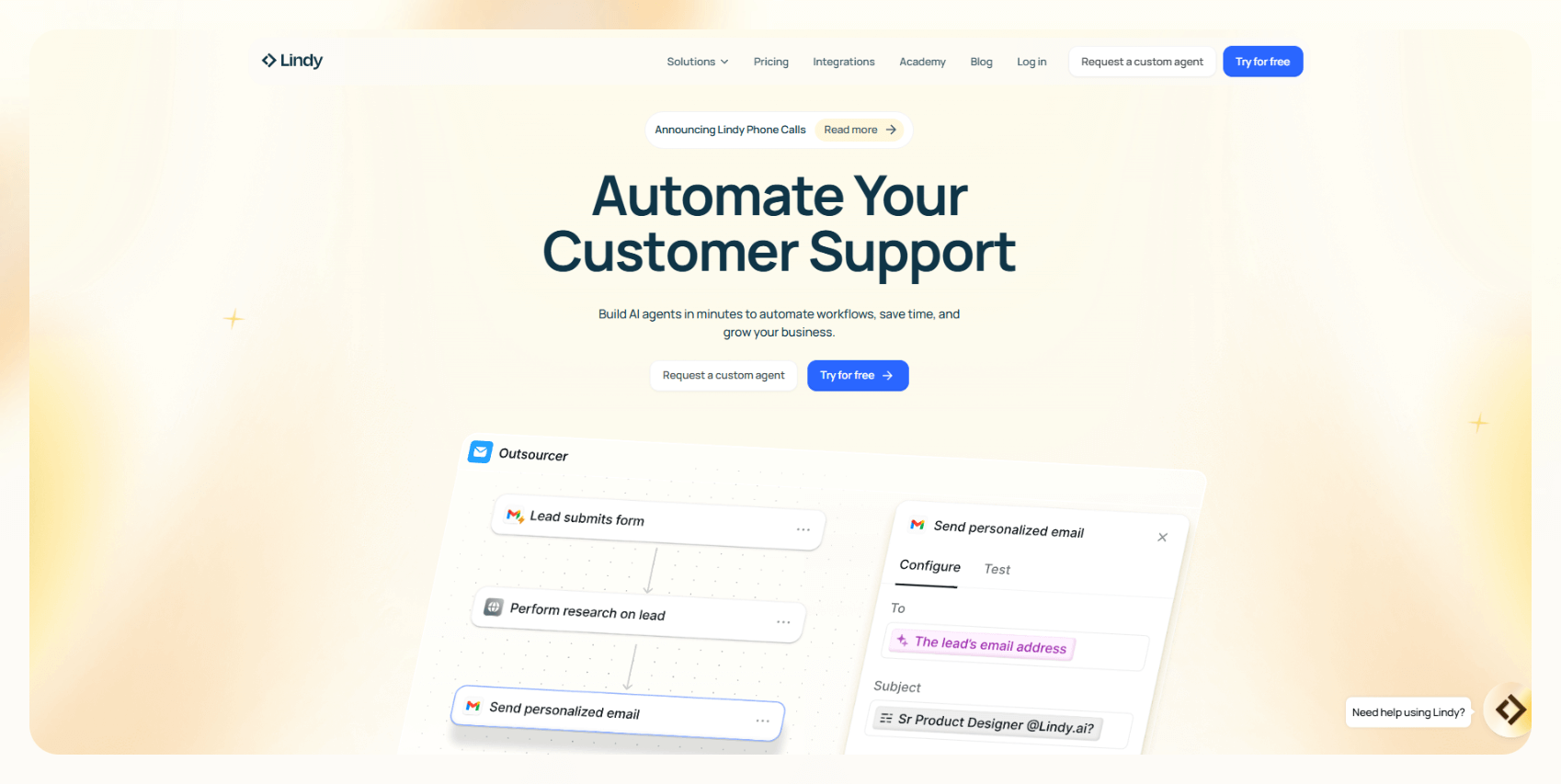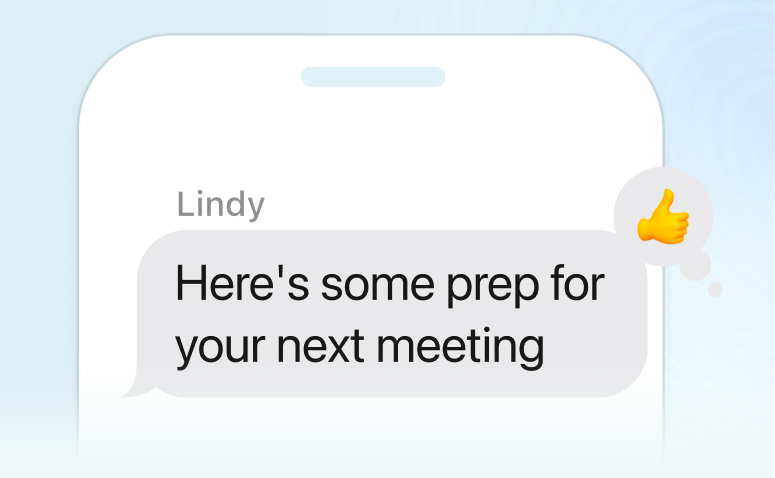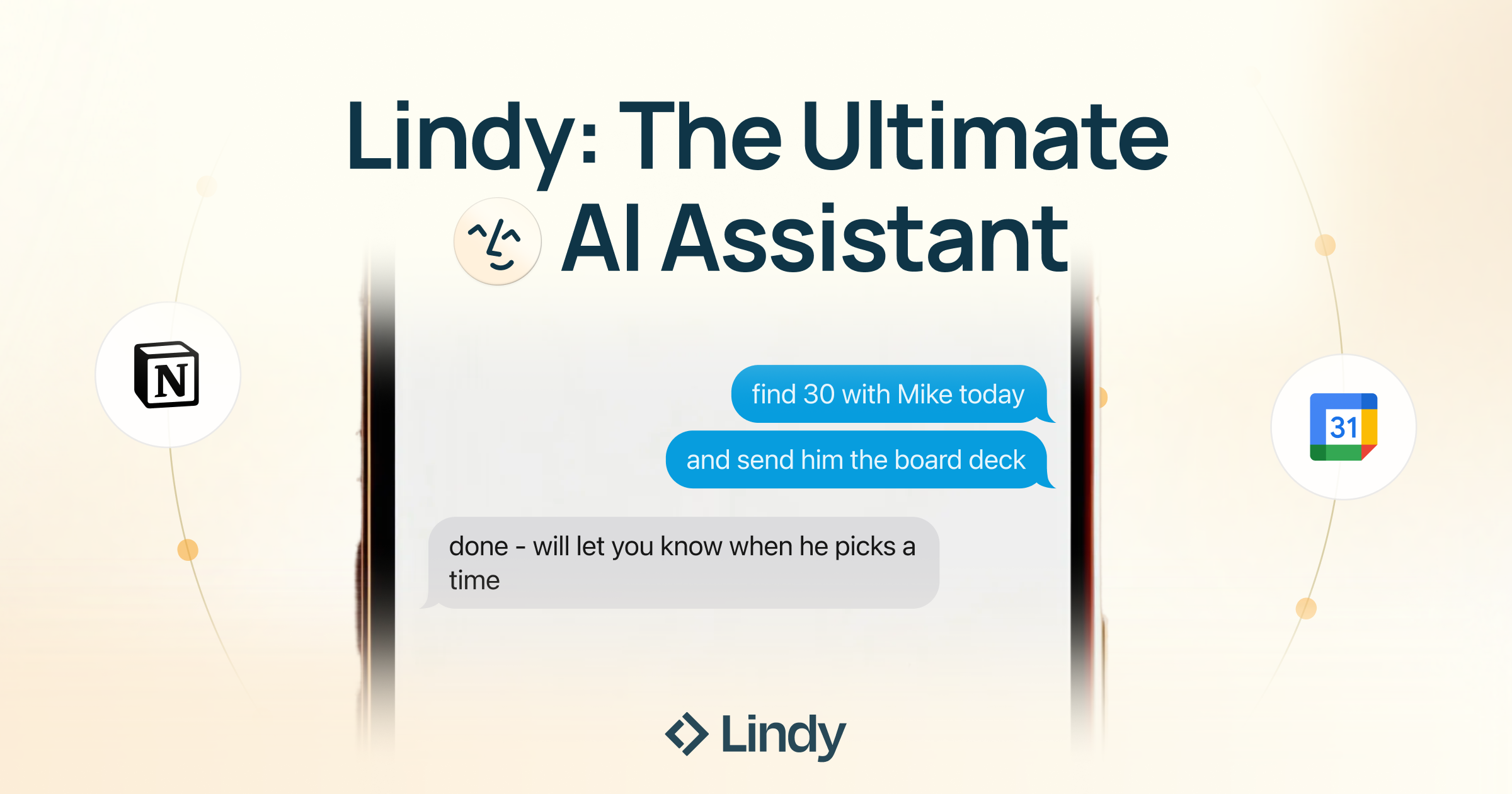Bardeen helps users automate repetitive browser tasks across different apps like LinkedIn, Notion, and Google Sheets. It can execute tasks like scraping data, autofilling forms, syncing information, and more.
However, as teams grow and workflows get complex, Bardeen's browser-only setup, limited logic, and lack of AI-powered automation can often lead to roadblocks. If you've hit that ceiling, it’s time to explore other platforms.
In this article, you'll learn:
- Why users move on from Bardeen
- The 12 best Bardeen alternatives to consider in 2025
- How we selected the top picks
- A detailed look at the top 12 platforms
- Common questions about switching from Bardeen
Why people look for Bardeen alternatives
Bardeen is a Chrome extension that automates browser-based workflows — things like copying data from websites, filling out forms, or sending templated outreach.
It’s especially useful for solo users handling personal tasks like scraping data or firing off quick follow-ups. With features like prebuilt playbooks, a visual scraper, and an AI assistant for writing messages, it’s gained popularity among growth hackers and productivity enthusiasts.
But everything runs inside your browser — and that’s where the limitations start to show. Bardeen falls short when teams need logic-based workflows, deeper integrations, or automation that scales beyond one person’s desktop.
That’s why many users eventually start looking for more flexible alternatives. Let’s look at a few of the shortcomings:
- Limited to browser workflows: Bardeen can only automate what’s visible in your browser tab — great for scraping or form-filling, but not for CRM updates, backend triggers, or cross-tool syncs.
- No AI agents or smart logic: It lacks context and decision-making smarts. You won’t get dynamic workflows or lead-scoring logic with Bardeen.
- Not built for teams: There's no real support for multi-user collaboration — no roles, permissions, or coordinated task handoffs.
- Rigid no-code setup: Bardeen’s interface is beginner-friendly, but struggles with branching logic, advanced conditions, or true workflow customization.
With that, we move on to list the 12 best Bardeen alternatives that people often explore.
The 12 best Bardeen alternatives in 2025
Some automation tools are built for developers, others for ops teams, and some help you do simple stuff without writing code.
Here's a list of the top Bardeen alternatives and what they're best suited for:
- Lindy: Best overall
- Zapier: Best for beginners
- Make (formerly Integromat): Best for visual builders who need flexible multi-step workflows.
- Relay.app: Best for adding human approvals into workflows without slowing things down.
- n8n: Best open-source tool for dev teams wanting full control and self-hosting.
- Pipedream: Best for developers building serverless automations with custom code.
Special mentions:
- Albato: Best for small teams needing affordable, no-code app integrations.
- Tines: Best for security teams needing strict audit trails and data control.
- Activepieces: Best lightweight, open-source option for small projects.
- Workato: Best for large enterprises managing complex, multi-team workflows.
- Integrately: Best budget option for simple one-to-one app connections.
- UiPath: Best for automating legacy desktop or back-office RPA workflows.
How we chose the best Bardeen alternatives
We focused on platforms that cover the core use cases and then went further in ways that matter to real teams.
Here's what we looked for:
- The number of integrations: Tools that connect with the apps teams use — CRMs, calendars, email, and databases.
- AI capabilities: We prioritized tools that use AI to make decisions, personalize actions, or adapt flows based on context.
- Workflow flexibility: Whether running simple triggers or branching multi-step processes, the platform needs to handle both — ideally without writing code.
- Team support: Shared workspaces, agent permissions, and collaborative flow-building are necessities if you're scaling automation across a team.
We also gave bonus points to tools with the following:
- Affordable starting plans
- Helpful templates and onboarding
- Open-source flexibility (for those who want control)
- Built-in features like scraping, enrichment, or scheduling
Let’s explore the platforms that aced these criteria.
The top 12 Bardeen alternatives in 2025
We listed 12 above. Let’s look at them 6 in detail:
- Lindy: Best overall

Lindy is an AI automation platform that lets you build custom AI agents. Each agent can handle a specific task, such as qualifying leads, scheduling meetings, following up via email, or routing support tickets.
Without writing code, you can build AI assistants with conditional logic, and connect them with tools like Gmail, HubSpot, Slack, and Notion. Lindy understands context and makes decisions based on your shared knowledge base (which can be unstructured instructions and data).
Advantages over Bardeen
- AI agents can collaborate and share context across workflows
- Prebuilt automations for voice, text, email, and CRM automation
- Visual workflow builder with human approvals
- 2500+ integrations via a Pipedream partnership, plus webhook support for custom tools
Who it's best for
Revenue ops, support, and operations teams who want more control — and less context-switching — when managing complex workflows can take advantage of Lindy.
Pricing
Lindy starts with a free plan that offers 400 credits per month. Paid plans start from $49.99/month for 5,000 credits.
Bottom line
Lindy is built for teams that need affordable AI-first automation across tools, channels, and teammates — not just browser tasks.
{{templates}}
- Zapier: Best for beginners

Zapier is one of the most well-known automation tools. It connects with 7000+ apps and lets users set up simple workflows using a no-code interface. It's easy to use, doesn't require technical knowledge, and supports almost every top SaaS tool.
Zapier works best for automating everyday one-to-one tasks, such as "when a new email comes in, create a task" or "when a lead fills out a form, send a Slack message."
Advantages over Bardeen
- Massive integration library (7,000+ apps vs Bardeen’s ~30)
- No Chrome dependency — runs in the cloud, not the browser
- Easier to get started with for non-technical users
- More stable for backend automation that doesn't rely on UI scraping
- A substantial library of prebuilt workflows (Zaps) for everyday tasks
Who it's best for
It's for freelancers, marketers, or small teams who want to automate repetitive tasks between apps without much setup or tech lift.
Pricing
A free plan is available. Paid plans start at $19.99/month.
Bottom line
If you're new to automation and want something simple, stable, and widely integrated, Zapier is a solid place to start.
- Make (formerly Integromat): Best for visual builders
%20(1).png)
Make gives you a visual way to build complex automations, which is ideal if you like mapping out your processes step-by-step. Make lets you branch, loop, filter, and manipulate data as it flows between tools.
The interface has a learning curve, but opens up a lot of flexibility once you understand it. It's handy for automations that require conditional logic or data formatting before passing things along.
Advantages over Bardeen
- Visual workflow builder
- Can handle complex multi-step flows with variables, filters, and loops
- Not browser-dependent — runs in the cloud and supports backend workflows
- Better for manipulating and transforming data mid-process
- Supports scheduling, error handling, and execution logs out of the box
Who it's best for
It'll suit the ops teams and technical marketers who want more control and visibility over how data moves between tools.
Pricing
Make offers a free plan. The paid plans start at $9/month, billed yearly.
Bottom line
If you want deeper logic and are willing to take a bit of a learning curve, Make offers a significant step-up in flexibility compared to most no-code tools.
- Relay.app: Best for adding human approvals into workflows without slowing things down

Relay excels at looping human judgment — approvals, reviews, edits — without slowing workflows down. It combines automation with checkpoints, so tasks can pause for feedback and continue once someone responds.
It's less about full automation and more about smoothing out processes where human decisions are still critical. Furthermore, it's a bridge between rigid automation and real-world team workflows.
Advantages over Bardeen
- Designed around collaboration and handoffs
- Allows workflows to pause for human input, approvals, or edits
- Built-in support for comments, feedback, and user assignments
- Runs independently of the browser
- Easier to coordinate workflows across ops, legal, marketing, etc.
Who it's best for
Cross-functional teams with shared workflows — like sales ops and customer success — who want automation that requires human decisions will find Relay valuable.
Pricing
Free plan available. Paid plans start at $9/month, billed yearly.
Bottom line
Relay is a great pick when you want automation that includes the people in the loop — not just works around them.
- N8n: Best open-source tool for dev teams wanting full control and self-hosting

n8n is a low-code, open-source automation platform designed for users who want complete control over their workflows down to the server level. You can self-host it, write custom logic, integrate it with over 200 services, or build your own. It's developer-friendly but offers a visual editor that works well for technical ops or data teams.
The low-code interface lets you define actions, set conditions, and pass data between steps without coding. You can still add custom code where needed, but most workflows can be built visually, which makes it faster to prototype, test, and deploy automations.
Advantages over Bardeen
- Self-hostable — complete control over infrastructure and data
- Visual builder supports branching logic, loops, conditions, and data transformations
- Not tied to browser actions
- Easier to extend with custom nodes and code snippets
Who it's best for
It's best for developers, tech-forward teams, or privacy-focused organizations that want control and the ability to host everything in-house. If you’re not among these, look for n8n alternatives.
Pricing
There are only paid plans, but you can start your 14-day free trial. The paid plans start at $20/month, billed yearly.
Bottom line
n8n is the best fit if you want a low-code, open-source platform to host, customize, and scale as you like without vendor lock-in.
- Pipedream: Best for developers building serverless automations with custom code

Pipedream lets you connect APIs, run code, and build workflows in JavaScript — with experimental support for Python and other languages like Go and Bash. You don't need to manage infrastructure. You can mix low-code steps with custom code in the same flow.
It's convenient for stitching together APIs that don't have plug-and-play integrations elsewhere.
Advantages over Bardeen
- Built-in code editor — great for developers who want to write logic directly
- Serverless runtime — no infrastructure management required
- Works across browsers, servers, and backend APIs
- Easy to combine no-code steps with custom code
- Better suited for building internal tools or dev-focused automation
Who it's best for
Pipedream caters to developers and technical teams who want automation flexibility without the overhead of spinning up a new app or maintaining a server.
Pricing
You have a free plan with 300 credits. Paid plans start at $29/month, billed yearly.
Bottom line
Pipedream is a solid pick for teams that want to stay close to code but still move fast, especially when dealing with APIs and internal systems.
Special mentions:
- Albato
Albato is a no-code automation platform designed for small teams and solopreneurs. It helps users connect popular apps like Google Sheets, Telegram, and Facebook Ads without writing any code. Its clean UI and generous free tier make it a solid entry point for non-technical users.
- Tines
Tines is purpose-built for security and operations teams that need robust automation with strict data control. It focuses on privacy-first workflows and audit-ready tracking — ideal for industries like finance, healthcare, or cybersecurity.
- Activepieces
Activepieces is an open-source automation tool that's great for side projects or lightweight internal workflows. It offers a visual builder with support for popular apps and webhook triggers, and you can self-host it for free.
- Workato
Workato caters to large enterprises managing complex, cross-department workflows. It’s a low-code platform with powerful integration capabilities and strong governance features. It’s best suited for teams with advanced needs and larger budgets.
- Integrately
Integrately is built for simplicity. It supports one-to-one app integrations and is ideal for users who want to set up quick automations with minimal effort. With over 1,000 apps supported, it’s a popular pick for budget-conscious teams.
- UiPath
UiPath is one of the most recognized platforms for robotic process automation (RPA). It excels at automating repetitive back-office tasks on legacy desktop systems — from invoice processing to data entry.
Frequently asked questions
What is Bardeen used for?
Bardeen is used for automating repetitive browser tasks like scraping data, sending outreach messages, and syncing information between apps. These workflows are powered by prebuilt automations called Playbooks.
Is Bardeen free?
Bardeen has a free trial but not a free plan. You can try it for 7 or 14 days, depending on the plan you choose. After the trial ends, you need to pay for the plan. The Starter plan starts at $99/month, billed yearly.
Can I use Bardeen with Gmail or LinkedIn?
You can — but only through the browser. Bardeen can automate Gmail or LinkedIn actions inside Chrome, like sending messages or scraping profiles. It doesn't integrate directly with the APIs like other backend automation tools.
What's the best Bardeen alternative for teams?
Relay is a strong choice for teams that need shared workflows with human approvals or handoffs. If your workflows involve more complex logic or span across tools like CRMs, inboxes, and calendars, Lindy offers a more AI-driven approach to task automation and follow-ups.
What's the best Bardeen alternative with AI?
Lindy offers customizable AI agents that handle tasks like email outreach, phone calls, CRM updates, and lead scoring — all without manual scripting. It’s a strong contender for those focused on sales and support automation.
For developers who prefer coding workflows from scratch, Pipedream may be a better fit. And if your focus is on adding human approvals to automated flows, Relay.app is worth considering.
{{cta}}
Lindy: The best Bardeen alternative
If you're looking for an easy-to-use AI automation platform that helps streamline tasks around emails, meetings, and sales — go with Lindy.
Out of all the Bardeen alternatives, here's why Lindy takes the gold:
- Eaay-to-use no-code interface: You won't need coding, programming, or technical skills to create your automations with Lindy — it offers a drag-and-drop visual workflow builder.
- AI agents customized to your needs: You can make versatile AI agents that understand plain English and accelerate your productivity in many ways. For instance, create a Lindy that bolsters your sales funnel by finding leads from websites and business intelligence sources like People Data Labs. Then, make a Lindy that follows up with the leads and schedules meetings with members of your sales team.
- Affordability: Build your first few automations with Lindy's free version and get up to 400 tasks. With the Pro plan, you can automate up to 5,000 tasks, which offers a lot of value than Lindy's competitors.




















.png)

%2520(1).png)
.png)
%20(1).png)


.png)